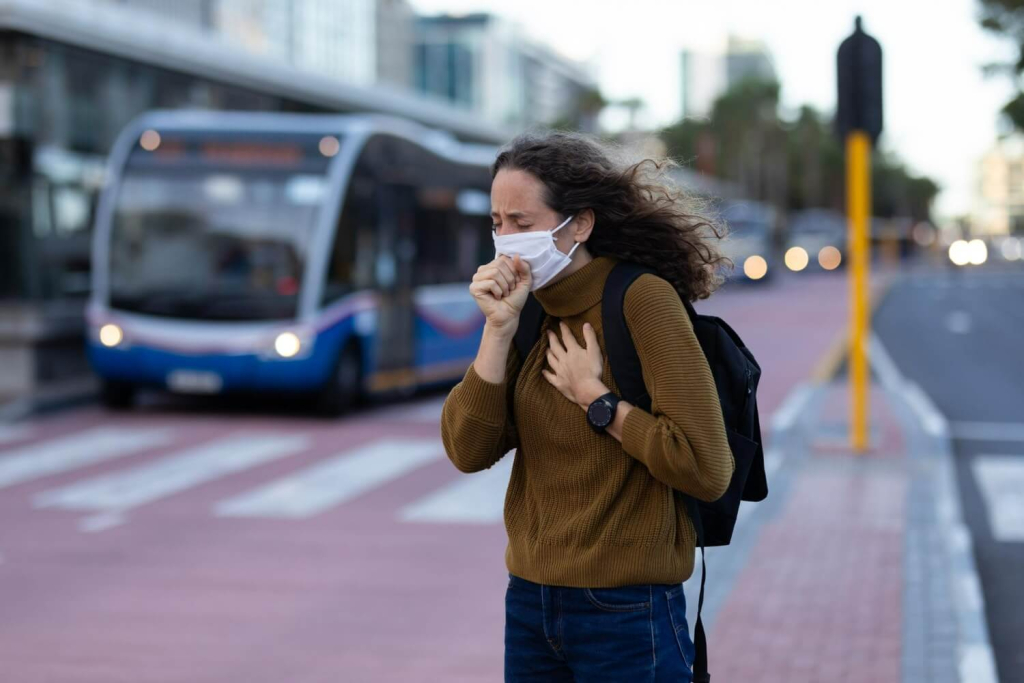
Every year, the influenza season in the Philippines typically peaks during the cooler months of June to November, though cases can appear year-round due to the country’s tropical climate.
According to the Department of Health (DOH), around 120 thousand to 130 thousand Filipinos are affected by the seasonal flu annually, with many developing flu-like symptoms that range from mild discomfort to serious illness requiring hospitalization.
While most people recover in a few days, the influenza virus can cause serious complications. There’s a higher risk of developing risky symptoms, especially among older adults, children, pregnant women, and those with chronic medical conditions or lung disease.
What Is Influenza?
Influenza, commonly known as the flu, is a contagious respiratory illness caused by flu viruses that infect the nose, throat, and sometimes the lungs.
Unlike the common cold, influenza tends to develop suddenly and can make you feel extremely unwell for several days.
Typical flu symptoms include
- high fever,
- chills,
- cough,
- sore throat,
- runny or stuffy nose,
- muscle or body aches,
- fatigue, and
- occasionally vomiting or diarrhea (especially in children).
How Does Flu Spread?
The flu spreads when another person touches contaminated surfaces like door knobs or shared eating utensils, or through close contact with someone who is sick.
Because influenza spreads easily through infectious particles released when an infected person coughs or sneezes, a single case can quickly lead to an outbreak in households, schools, and offices.

Though most people recover within a week or two, flu complications can occur, such as pneumonia or the worsening of chronic lung disease and heart conditions.
In vulnerable individuals, these can lead to severe illness or even death. Because of this, following proper influenza prevention tips and maintaining good health habits are vital.
8 Influenza Prevention Tips and Habits You Need to Start:
While there’s currently no way to eliminate the influenza virus totally from the world, it’s important to be aware and informed of habits to help you and your family stay protected from this contagious respiratory illness.
From getting a flu vaccine to good hygiene, there are several ways to curb the spread of this infection.
1. Get Flu Vaccination Early
The flu vaccine (also known as the flu shot) is the most effective way to prevent the flu and reduce the risk of serious complications.
The DOH and the Advisory Committee on Immunization Practices recommend annual flu vaccination for everyone aged six months and older. Since flu viruses mutate regularly, the seasonal influenza vaccine is updated each year to protect against the most common circulating flu strains.
It’s best to get the flu shot before the typical flu season begins to give your immune system time to build up defenses. Flu vaccination also helps protect those at higher risk, such as people with chronic health conditions, pregnant women, and the elderly, who may be at an increased risk of severe complications or flu-related complications.
2. Practice Frequent Hand Washing
One of the simplest and most effective preventive actions against influenza and other infectious diseases is to wash your hands often.

Use soap and water and scrub for at least 20 seconds, especially after coughing, sneezing, or touching your eyes, nose, or mouth. If soap and water are not available, use an alcohol-based hand sanitizer with at least 60% alcohol.
Hand washing prevents you from transferring infectious particles from contaminated surfaces to your mouth and nose, where the virus can enter your body.
Remind children to practice proper hand washing, especially before eating and after coming home from school or public areas.
3. Avoid Touching Your Eyes, Nose, and Mouth
When you avoid touching your eyes, nose, or mouth, you reduce your risk of introducing flu viruses into your system.
Encourage everyone at home to be mindful of this habit, particularly when they’ve been outdoors or using shared items like phones, computers, or door knobs.
4. Cover Your Mouth and Nose When You Cough or Sneeze
Always cover your mouth and nose with a tissue or your elbow when you cough or sneeze to prevent the spread of infectious particles, like the flu virus.
Throw away used tissues immediately and wash your hands afterward. Teach kids to follow the same practice to minimize infection and flu spread in the household.
5. Maintain a Strong Immune System
A healthy immune system is your family’s first defense against infectious diseases. A strong immune system will provide protection against most viruses, including the flu.

Encourage everyone to get adequate sleep, exercise regularly, and eat a balanced diet rich in fruits, vegetables, and lean protein. These good health habits help the body fight off the seasonal flu and reduce the risk of serious illness.
Also, remind family members to drink plenty of fluids, particularly hot water, to stay hydrated and soothe irritated throats. Dehydration can weaken the body’s resistance to respiratory illness.
6. Keep Your Environment Clean
Since the influenza virus can linger on surfaces, regular disinfection is a key step in preventing flu.
Clean commonly touched objects, including phones, tables, remote controls, and door knobs, with disinfectant.
Use hot water and detergent when washing utensils, plates, and linens used by a sick family member.
Avoid sharing eating utensils and towels, and ensure proper ventilation in your home to minimize the buildup of infectious flu particles indoors.
7. Avoid Close Contact With Someone With Flu Symptoms, Stay Home When Sick
If someone in the family shows flu-like symptoms such as fever, body aches, or fatigue, encourage them to stay home and rest.
Limiting close contact with others helps prevent flu spread and protects those at increased risk of severe illness.

If flu symptoms worsen or if the patient belongs to a higher-risk group (such as someone with lung disease or chronic medical conditions), seek medical care immediately. A healthcare provider can determine whether antiviral medications or additional medical attention are needed to prevent severe complications.
8. Use Hand Sanitizer and Disinfectant When Out
When traveling or in public spaces where soap and water are unavailable, use a portable hand sanitizer. Choose an alcohol-based hand sanitizer for quick protection after handling money, touching public surfaces, or using transportation.
This small but consistent step helps stop flu spread in crowded areas, one of the most important influenza prevention tips during the typical flu season.
When to Seek Medical Attention
Don’t delay seeing the doctor if you feel you need it. You don’t have to be extremely sick before you seek professional help.
See your healthcare provider right away if you experience these symptoms: persistent high fever, shortness of breath, or chest pain, especially if you have chronic lung disease or other health conditions that increase your risk for severe illness.
Early medical care can reduce the severity of the infection and prevent flu-related complications.
Remember that similar symptoms may also indicate COVID-19 or other respiratory illnesses, so accurate testing and professional advice are essential.
Staying Healthy During the Flu Season and Beyond in Camella
Protecting your family during flu season starts with a safe, supportive community environment. Camella, one of the Philippines’ leading real estate developers, understands the importance of good health habits and community-wide disease control.

Camella’s master-planned neighborhoods feature spacious homes, fresh air, and green open spaces that encourage residents to live active, balanced lifestyles, helping strengthen the immune system and promote overall wellness.
With Camella, you’re investing in a healthier, safer future for your family.
Take preventive steps this seasonal influenza period, stay protected with your annual flu vaccination, and enjoy peace of mind in a community that truly cares for your well-being.


